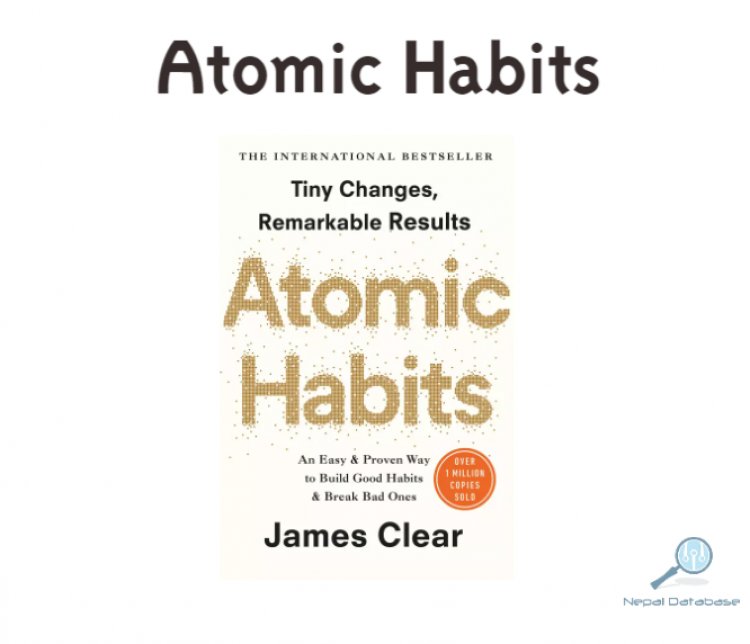20 important learnings from Atomic Habits
"Atomic Habits" is a book written by James Clear that outlines a framework for building and maintaining good habits in order to achieve long-term success.

"Atomic Habits" is a book written by James Clear that outlines a framework for building and maintaining good habits in order to achieve long-term success. Here are some key takeaways from the book:
-
Small habits can lead to big results
Clear argues that it's the small, consistent actions that we take on a daily basis that ultimately determine the direction of our lives. By focusing on building good habits and breaking bad ones, we can make significant progress over time. -
Habits are formed through a process called "habit formation loop"
This loop consists of a cue, a routine, and a reward. The cue is a trigger that prompts us to take action, the routine is the action itself, and the reward is the result that reinforces the behavior. By understanding and manipulating this loop, we can more effectively create and maintain habits. -
It's easier to change your environment than it is to change your mind
The environment plays a significant role in shaping our habits. By making small changes to our environment, we can make it easier or harder to engage in certain behaviors. -
To build a new habit, make it easy
The more effort a behavior requires, the less likely we are to do it. To build a new habit, we should start by making it as easy as possible. This can involve setting up a simple cue, making the behavior as easy as possible, and rewarding ourselves for completing it. -
To break a bad habit, make it hard
To break a bad habit, we should make it as difficult as possible to engage in the behavior. This can involve setting up barriers or making it inconvenient to do the behavior.
-
Habits are most effective when they become automatic
When a behavior becomes automatic, it requires little thought or effort. By focusing on building habits that become automatic over time, we can free up mental energy and focus on more important tasks.
-
It's important to have a clear goal in mind
Having a clear goal helps to provide motivation and direction for building good habits. It's important to have specific, measurable, achievable, relevant, and time-bound (SMART) goals in mind when working on building new habits. -
It's important to track your progress
Tracking your progress can help to keep you motivated and accountable as you work on building new habits. It can also help you to identify any challenges or roadblocks that you may be facing and find ways to overcome them. -
It's important to have a plan for setbacks
It's normal to encounter setbacks or challenges when building new habits. Having a plan in place for how to handle these setbacks can help you to stay on track and not get discouraged. -
Habits work best when they become part of your identity
When a behavior becomes part of who you are, it's more likely to stick. By aligning your habits with your values and sense of identity, you can make them more meaningful and sustainable. -
It's important to surround yourself with supportive people
The people we surround ourselves with can have a big impact on our habits and behaviors. Surrounding ourselves with supportive people who encourage us to build good habits can be a powerful way to stay motivated and accountable.\ -
It's important to have a support system in place
Having a support system in place can help to provide motivation, accountability, and encouragement as we work on building new habits. This could include friends, family, or a support group. -
It's important to be patient
Building new habits takes time and requires consistent effort. It's important to be patient and to recognize that progress may not always be linear. -
It's important to celebrate small victories
Celebrating small victories along the way can help to keep you motivated and to build momentum as you work on building new habits. -
It's important to be consistent
Consistency is key when it comes to building and maintaining good habits. By making a consistent effort to engage in the behavior, we can make it more likely to stick. -
It's important to have a plan for maintaining your habits
Maintaining good habits requires ongoing effort. Having a plan in place for how you will continue to engage in the behavior over time can help to ensure that it becomes a long-term part of your life. -
It's important to be flexible
While consistency is important, it's also important to be flexible and willing to make adjustments as needed. If something isn't working, it may be necessary to make changes to your approach. -
It's important to be kind to yourself
Building new habits can be challenging, and it's important to be kind to yourself and to recognize that setbacks are a normal part of the process. -
It's important to seek help if needed
If you're struggling to build or maintain good habits, it may be helpful to seek the help of a professional, such as a coach or therapist. -
It's important to keep learning
Building and maintaining good habits is an ongoing process, and it's important to continue learning and finding ways to improve. This could involve reading books or articles, seeking the advice of experts, or joining a support group.
In conclusion, building and maintaining good habits is an important factor in achieving long-term success. Small, consistent actions can lead to significant progress over time. The process of habit formation involves a cue, a routine, and a reward, and by understanding and manipulating this loop, we can more effectively create and maintain habits. It's easier to change our environment than it is to change our minds, so making small changes to our environment can help to shape our habits. To build a new habit, we should make it as easy as possible, and to break a bad habit, we should make it as difficult as possible. Habits are most effective when they become automatic, and it's important to have a clear goal in mind, track our progress, have a plan for setbacks, surround ourselves with supportive people, have a support system in place, be patient, celebrate small victories, be consistent, be flexible, be kind to ourselves, seek help if needed, and continue learning.
What's Your Reaction?



































































































